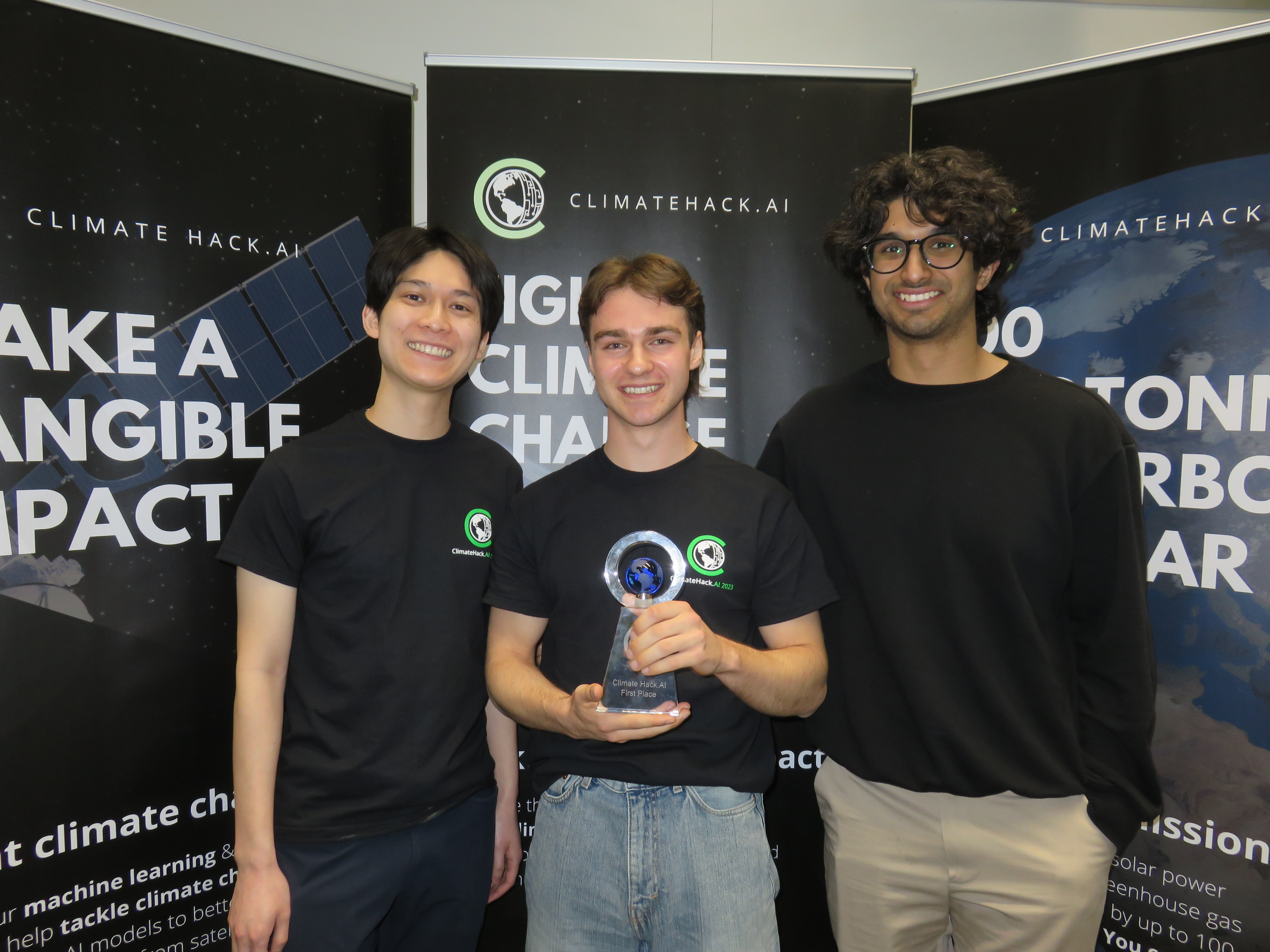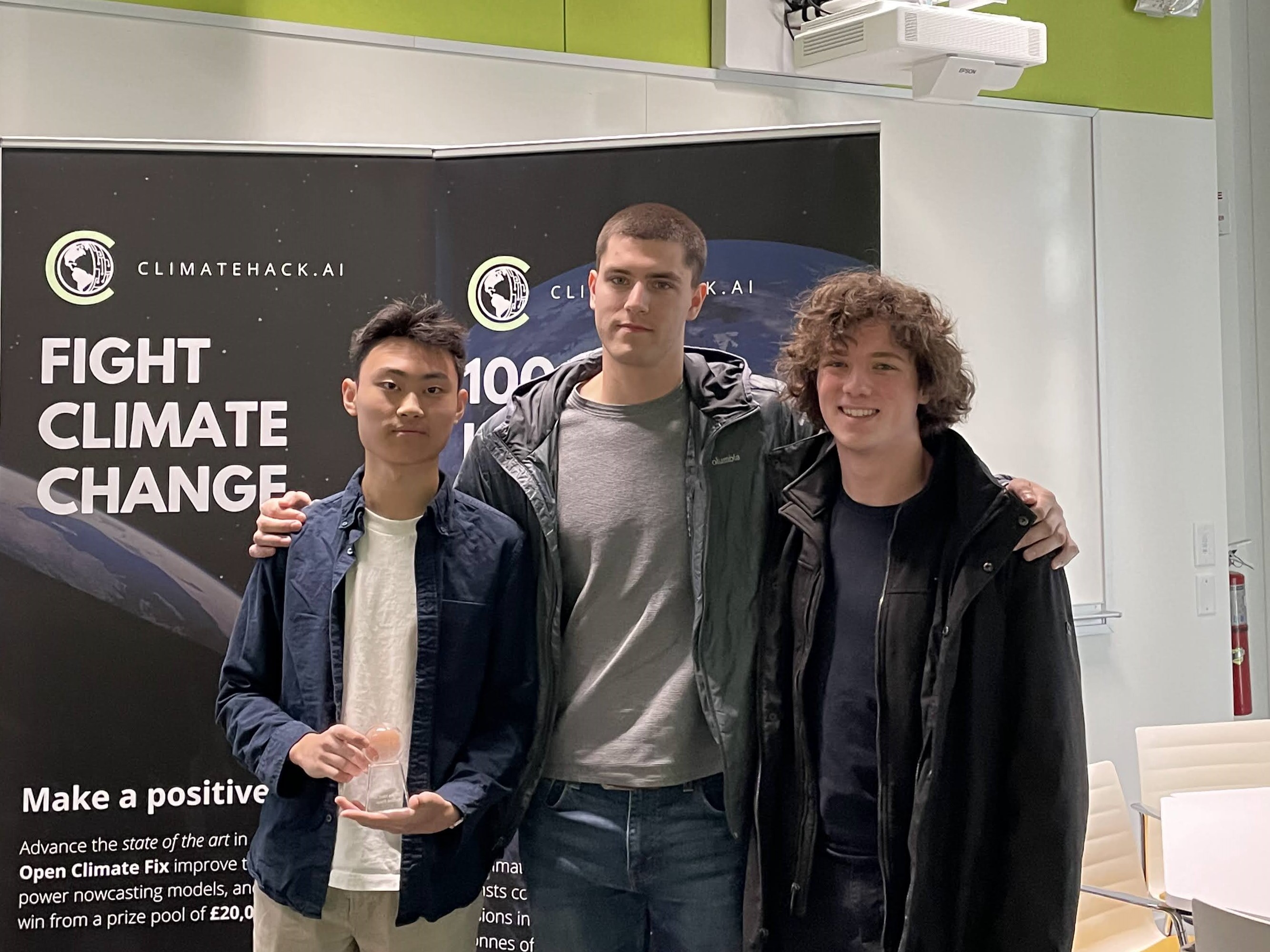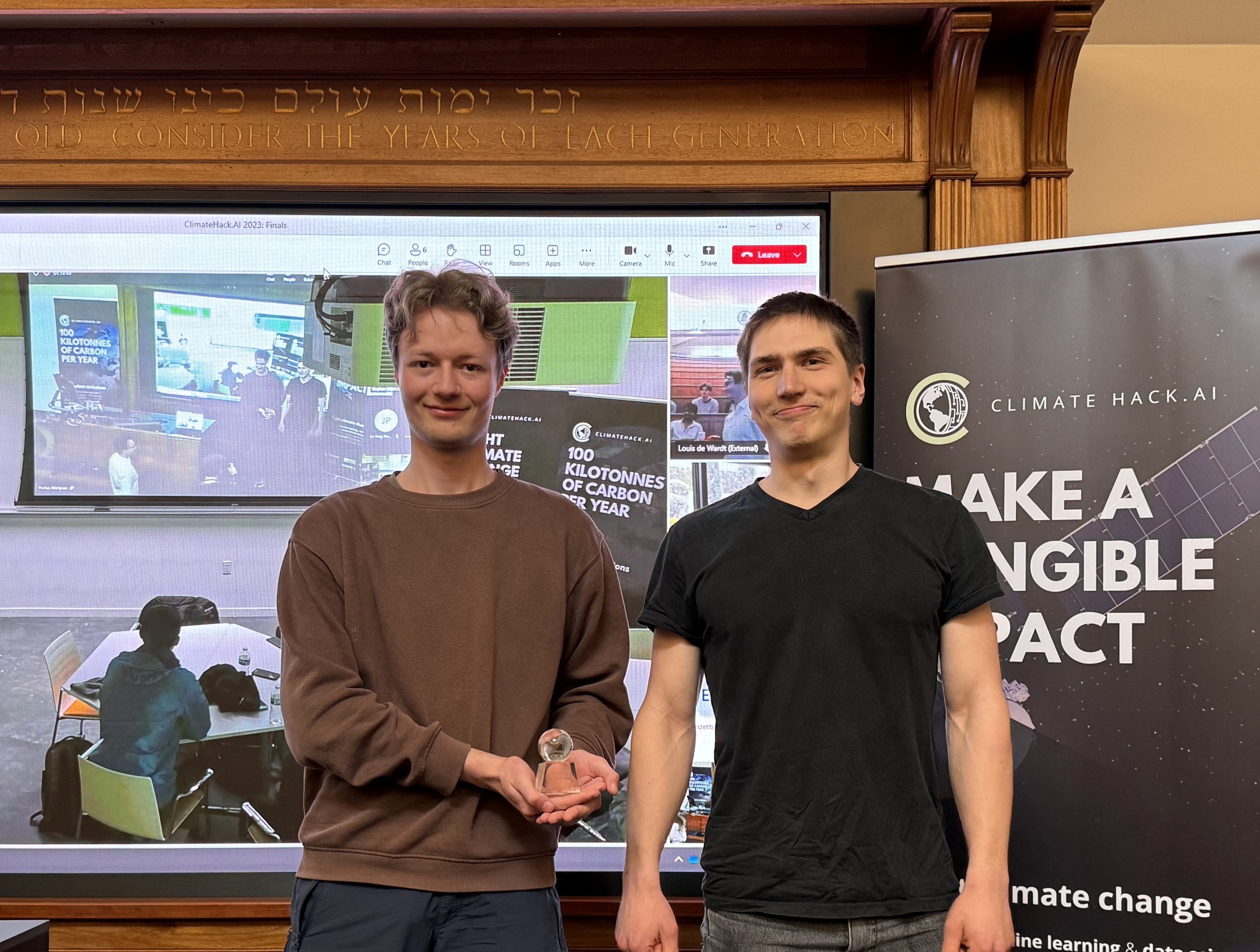ClimateHack.AI 2023-24

Solar power forecasting
Electricity system operators ensure in real time that electricity can always be supplied to meet demand and prevent blackouts, but intermittent renewable energy sources, such as solar and wind, introduce significant uncertainty into the grid's power generation forecasts.
To account for this uncertainty, electricity system operators maintain a spinning reserve based on non-renewable energy sources (e.g. natural gas) that can quickly ramp up to meet any shortfalls.
More accurate near-term solar power generation forecasts would allow grid operators to reduce this use of non-renewables and cut emissions by up to 100 kilotonnes per year in Great Britain and on the order of 50 megatonnes per year worldwide by 2030.
The challenge
In the 2023-24 competition, Open Climate Fix challenged our participants to develop accurate, efficient machine learning models for predicting solar power generation at the level of individual sites up to four hours ahead.
Over 600 gigabytes of EUMETSAT satellite imagery, Deutscher Wetterdienst numerical weather predictions, ECMWF air quality forecasts and historical solar power generation data collected from live PV systems in the UK were made available to participants to build their models.
All in all, 3,900+ models were uploaded by competition participants to the DOXA AI platform for evaluation, and the contributions of the competition will support the solar power nowcasting research of Open Climate Fix.
Find out more about this year's challenge on the competition page.
The community
This year's competition saw students involved from 18 universities: Bristol, Caltech, Carnegie Mellon University, Harvard University, Illinois Urbana-Champaign, Imperial College London, King's College London, Manchester, Michigan, Oxford, Princeton, St Andrews, Toronto, UC Berkeley, UCLA, University College London (UCL), Warwick and Waterloo.
After a 15-week qualifying round, the top three individual participants from each university were invited to form a team and present their best solutions in person to a panel of expert judges at the competition finals hosted at UCL and Harvard University on 5th and 6th April 2024.
It was also an incredible opportunity to bring likeminded machine learning enthusiasts together; while ClimateHack.AI is a competition, our mission is to foster an international community tackling climate change with AI.

The winning teams
Congratulations to this year's winners: Areel, Carter and Trevor from the University of Waterloo; Andrew, Grace, Tim and Val from UC Berkeley; and Tom and Michael from the University of Bristol. 🥳
The winning teams worked hard over a number of months to develop their final submissions, which have since been made available on GitHub and are accessible via the links below. 😎




